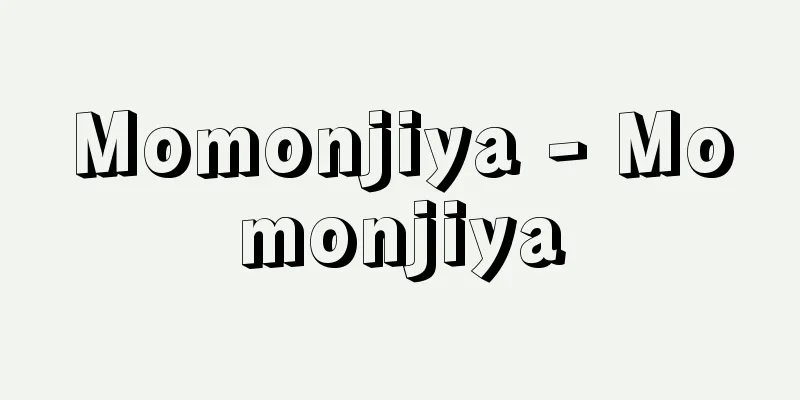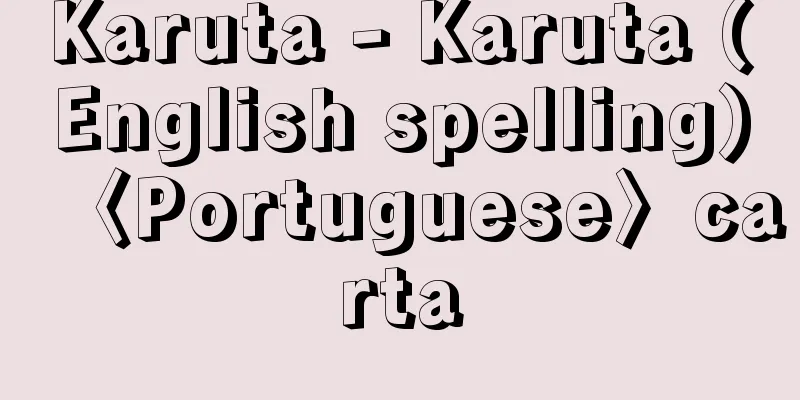Momonjiya - Momonjiya

|
In the Edo period, this term refers to shops that sold wild boar, deer, raccoon dog, and other animal meat (momonji), as well as the merchants who sold them. In Japan, from the Nara period until the early Meiji period, due to the influence of Buddhist thought, eating meat was apparently frowned upon. However, in the Edo period, eating animal meat was called "yaku-iku" (eating meat for medicine), and some people ate it for health reasons. There were animal meat shops in Edo's Ryogoku, Yotsuya, Kojimachi, and other areas. There is a theory that the word momonji is a corruption of momoju (a hundred beasts), and it was also used to mean hairy monsters. [Yoshihiro Yoshii] Source: Shogakukan Encyclopedia Nipponica About Encyclopedia Nipponica Information | Legend |
|
江戸時代、イノシシ、シカ、タヌキなどの獣肉(ももんじ)を売る店、またその商人をいう。日本では奈良時代以降、明治初期まで仏教思想の影響から、表面上、肉類を食べることは忌み嫌われていた。しかし、江戸時代には、獣肉を食うことを薬食いといい、養生のためとして食べる者もいた。江戸の両国、四谷(よつや)、麹町(こうじまち)などに獣肉の店があった。ももんじという語は百獣(ももじゅう)の転訛(てんか)という説があり、毛深い化け物などの意味にも用いられた。 [芳井敬郎] 出典 小学館 日本大百科全書(ニッポニカ)日本大百科全書(ニッポニカ)について 情報 | 凡例 |
Recommend
Carlos V - Carlos
…Three civil wars fought in Spain in the 19th cen...
Takaaki Kimura
Year of death: November 1, 1742 (November 27, 1742...
Hurrem (English spelling)
...Mother of Selim II. Also known as Hürrem. Her ...
Probation - probation
A disposition in which a person who has committed...
Ion channel
A type of information transmission mechanism in ce...
sprawl
…Sprawl means to spread untidily, and refers to t...
Keil, A.
…On the other hand, secular instrumental music an...
Emushi - Emushi
→ Rock worm Source : Heibonsha Encyclopedia About ...
Irrawaddy dolphin (English spelling)
A mammal of the Delphinidae family in the suborder...
Trivandrum - Trivandrum (English spelling)
The capital of Kerala state in southwest India. I...
Asazuma boat
Kabuki dance. Nagauta. Original title: Namimakura...
While the City Sleeps
…Produced in 1950. Another title is “While the Ci...
Immunofluorescence
An extremely sensitive method that uses antibodies...
Mantle - Very good
In mollusks and brachiopods, this refers to the m...
Ibara [city] - Ibara
A city in the southwest of Okayama Prefecture. It ...









